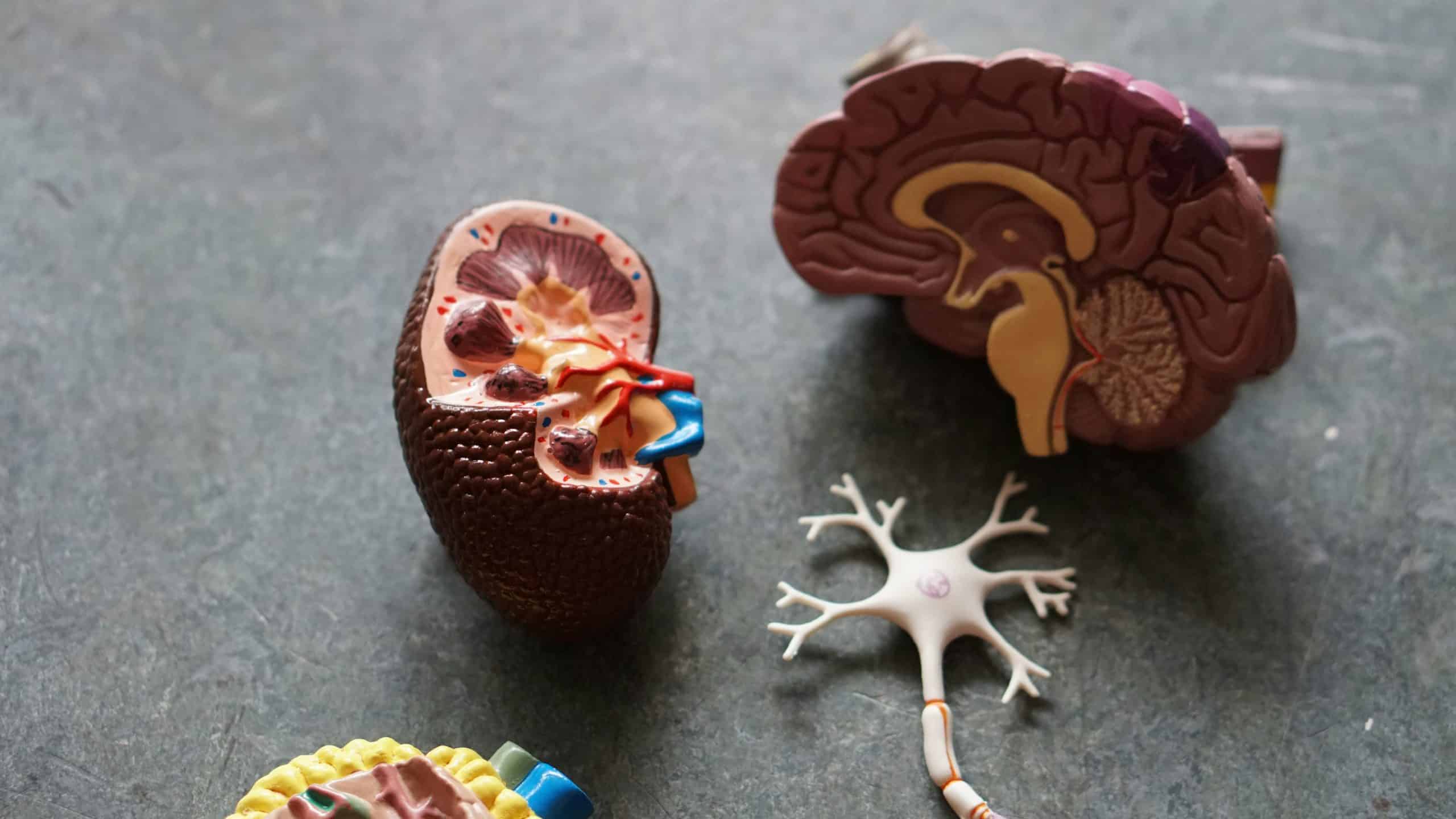Preserving Memory through Nutrition: Dietary Alterations as a Defensive Strategy Against Alzheimer’s Disease

Changing your diet could be a crucial key to preserving your memories and cognitive functions in the face of Alzheimer’s disease. Find out how adjusting your diet can help slow the progression of this debilitating disease and protect your memory.
The impact of diet on the progression of Alzheimer’s disease

Understanding the relationship between nutrition and Alzheimer’s disease
Alzheimer’s disease, a progressive neurodegenerative disorder, is influenced by a variety of factors, among which diet plays a crucial role. While the exact links between food and the progression of this disease continue to be studied, evidence suggests that certain diets may help to slow or increase the risk of its progression. The aim is therefore to highlight dietary practices that could potentially positively influence the course of this disease.
Brain-friendly diets
Certain dietary habits have been associated with a reduced risk of developing Alzheimer’s disease. Studies point in particular to the Mediterranean diet and the MIND diet. These diets are rich in fruits, vegetables, whole grains, olive oil, nuts and fish; foods that promote brain health. They also limit consumption of red meats and processed foods, known for their negative influence on cognitive health.
- The Mediterranean diet: Reduces inflammation and improves blood lipids, which may help protect against neuronal loss.
- The MIND diet: Combines elements of the Mediterranean diet and the DASH (Dietary Approaches to Stop Hypertension) diet, with an emphasis on foods specifically beneficial to the brain.
Foods recommended to delay the progression of the disease
Several foods are particularly recommended for their neuroprotective potential. Omega-3 fatty acids, found in oily fish such as salmon, mackerel and sardines, are essential for healthy neuronal cell membranes. Antioxidants, found in berries and green vegetables like spinach and kale, help combat oxidative stress, a factor implicated in the advancement of neurological degeneration. Nuts and seeds, which are good sources of vitamin E, also play a role in the slow progression of Alzheimer’s disease.
Foods to avoid
Certain foods can aggravate symptoms or accelerate the progression of Alzheimer’s disease. Foods high in saturated fats and cholesterol, such as red meat and full-fat dairy products, can contribute to the formation of amyloid plaques in the brain, which are characteristic of the disease. Similarly, high levels of sugar in the diet can not only exacerbate cognitive decline, but also increase inflammation.
- Avoid excessive consumption of sugar and processed foods.
- Limit saturated fats and cholesterol.
The importance of vitamins and minerals
Vitamins B (particularly B12 and B6), D and E have been identified as essential for maintaining cognitive function and preventing Alzheimer’s disease. A deficiency in these vitamins can exacerbate the precursor symptoms of mental illness. Supplementation with these vitamins could therefore contribute to better management of the disease, or even delay its onset in high-risk individuals.
Proper dietary management can be a crucial aspect of the overall management of Alzheimer’s disease. This type of prevention through diet is not a substitute for drug treatment, but it could make a major contribution to maintaining quality of life for sufferers, and potentially slow the progression of the disease.
Key foods for cognitive health

Alzheimer’s disease, a form of neurodegenerative dementia, affects memory, thinking and behavior. While no cure currently exists, some studies indicate that diet can play a crucial role in reducing the risk and managing the symptoms of this disease. Let’s explore the foods that benefit cognitive health and can help in the context of Alzheimer’s.
Omega-3 fatty acids
Omega-3 fatty acids, found in large quantities in fatty fish such as salmon, sardines and mackerel, are essential for optimal brain function. They contribute to the formation of new brain cells and the protection of existing ones. Research suggests that omega-3s may help reduce brain inflammation, a factor associated with Alzheimer’s.
Antioxidants: berries and leafy vegetables
Foods rich in antioxidants can slow the aging process in the brain and improve neurological health. Berries, especially blueberries, strawberries and raspberries, contain flavonoids that protect the brain from oxidative damage. Similarly, green leafy vegetables such as spinach and kale are loaded with vitamins A and K, which can protect the brain and improve memory.
Nuts and seeds
A valuable source of vitamin E, nuts and seeds can help prevent cognitive decline. Vitamin E is a powerful antioxidant that helps fight the free radicals responsible for brain damage. Almonds, walnuts, flax and chia seeds are excellent options for incorporating this antioxidant into your daily diet.
Spices: turmeric and cinnamon
Turmeric, and particularly its active component curcumin, is renowned for its anti-inflammatory and antioxidant properties. Incorporating turmeric into the diet could help reduce Alzheimer’s symptoms and improve cognition. Similarly, cinnamon, in addition to reducing inflammation, may help combat the accumulation of tau proteins in the brain, one of the markers of Alzheimer’s.
Coffee and green tea
Moderate consumption of coffee and green tea can also have beneficial effects on cognitive health. The caffeine and antioxidants present in these beverages stimulate brain activity and may help protect against Alzheimer’s disease. Green tea, in particular, contains compounds called catechins, which can reduce the formation of beta-amyloid plaques in the brain.
Adopting a diet rich in these elements may play a role in preventing or managing Alzheimer’s disease. It is always advisable to consult healthcare professionals such as dieticians or neurologists for personalized recommendations appropriate to your situation or that of your loved ones.
Relationship between diet and prevention of Alzheimer’s symptoms

Understanding the link between Alzheimer’s and Nutrition
Alzheimer’s disease, which mainly affects the elderly, is marked by a progressive decline in cognitive function and memory. Recent research suggests that diet plays a crucial role in modulating the risk and progression of this neurodegenerative disease. A balanced diet can help reduce inflammation and oxidative stress, two factors associated with an increased risk of developing Alzheimer’s.
Essential nutrients to prevent Alzheimer’s symptoms
Several nutrients are renowned for their protective potential against Alzheimer’s. For example, omega-3 fatty acids, found in oily fish such as salmon and sardines, promote brain health by reducing inflammation. Antioxidants, meanwhile, reduce oxidative stress and are abundant in colorful fruits and vegetables. Vitamin D, magnesium and B vitamins, particularly folate, are also important. These nutrients support neural functions and may be beneficial in preventing or slowing the onset of Alzheimer’s symptoms.
Impact of specific diets
Diets such as the Mediterranean diet or the MIND diet have been studied for their positive impact on brain health. Rich in fruits, vegetables, nuts, healthy oils and fish, these diets minimize consumption of red meats, fatty dairy products and sweets. Not only are they beneficial for cardiovascular health, but their richness in antioxidants and essential fatty acids also offers protection against Alzheimer’s-related cognitive decline.
Managing diet in Alzheimer’s patients
As Alzheimer’s disease progresses, feeding management becomes a crucial aspect of care. Swallowing and appetite disorders are common, as is a tendency to forget to eat. Adapting the eating environment, simplifying meal choices, maintaining a regular meal routine and encouraging the consumption of foods rich in essential nutrients can help maintain adequate nutrition and prevent weight loss. Often, the intervention of a nutritionist or dietician can prove beneficial.
Dietary supplementation: a complementary approach
You may wish to consider supplementation with certain vitamins and minerals after consulting a health professional. Vitamin D supplements, B vitamin complexes, omega-3 fish oil capsules and antioxidants such as vitamin E may be recommended, depending on individual needs. However, it is essential to personalize this approach according to existing health conditions and ongoing drug treatments.
Practical tips for incorporating these recommendations into daily life
To effectively integrate these recommendations, start by adding a variety of vegetables to every meal, and opt for healthy oils such as olive oil. Focus on lean proteins and include sources of omega-3 regularly in your diet. Reduce your intake of sugar and red meats, and favor whole grains. These simple adjustments can have a significant impact on brain and overall health, helping to thwart the development or progression of Alzheimer’s.
Recent studies and research on diet and memory
Diet plays a crucial role in the progression of Alzheimer’s disease, and recent research continues to underscore its importance. Scientists increasingly agree that certain foods can positively influence cognitive health, slowing neurological decline and reducing the risk of developing this devastating disease.
The Mediterranean diet, rich in fruit, vegetables, olive oil, nuts and fish, has been particularly highlighted. Studies have shown that this type of diet contributes to a significant reduction in the risk of Alzheimer’s thanks to its anti-inflammatory and antioxidant components. Omega-3 fatty acids, found in large quantities in oily fish such as salmon and sardines, are particularly recognized for their protective effects on the brain.
The role of antioxidants and inflammation
Antioxidants play an essential role in protecting the brain against oxidative stress, a well-known factor in the progression of Alzheimer’s disease. Antioxidant-rich foods such as berries, green leafy vegetables and whole grains should therefore be a regular part of the diet.
Inflammation is another major contributor to the progression of neurodegenerative diseases, so adopting a diet that combats inflammation is crucial. Turmeric, for example, is renowned for its anti-inflammatory properties, thanks to curcumin, one of its active components, which helps combat cerebral inflammation.
Diets to adopt
In addition to the Mediterranean diet, the MIND (Mediterranean-DASH Intervention for Neurodegenerative Delay) diet combines the principles of the Mediterranean diet and the DASH (Dietary Approaches to Stop Hypertension) diet. It is specifically formulated to reduce the risk of neurodegenerative diseases by emphasizing the consumption of berries, green leafy vegetables and nuts.
Adopting these diets can not only influence memory preservation, but also improve other aspects of cognitive and general health. It is advisable to favor whole, natural foods, limit sugar and saturated fat intake, and maintain a rich, varied diet to benefit from a full range of protective nutrients.
Diet-related therapeutic advances
Current research also extends to therapeutic interventions linking diet to preventive or curative treatment of Alzheimer’s disease. Clinical studies are underway to examine the effects of dietary supplements such as vitamin E, resveratrol and flavonoids on disease progression.
A promising approach is intermittent calorie restriction therapy, which shows potential for improving neurological function and slowing the effects of age on the brain. Although the results of these approaches are still preliminary, they open up interesting avenues for preventive strategies and early interventions in the fight against Alzheimer’s disease.
It is becoming increasingly clear that diet can play a decisive role not only in the prevention but also in the management of Alzheimer’s disease. Adopting healthy eating habits could therefore be an effective strategy for combating and slowing the development of neurodegenerative conditions, something that research continues to explore and validate.